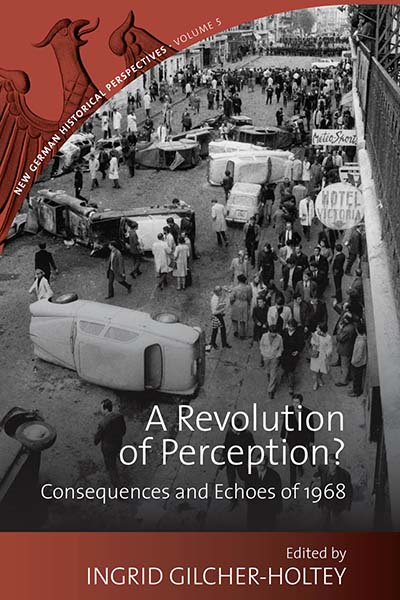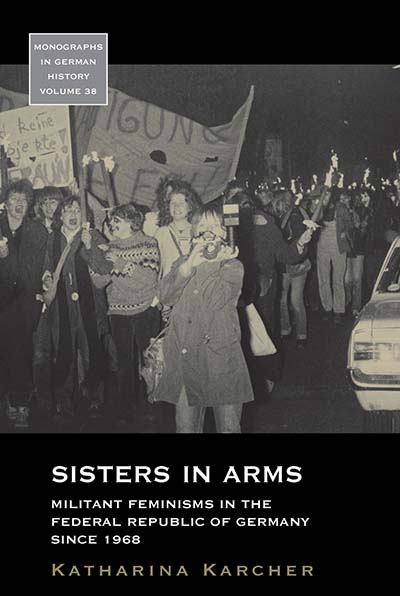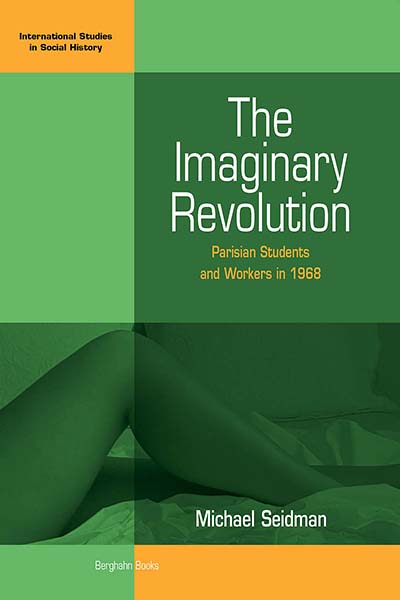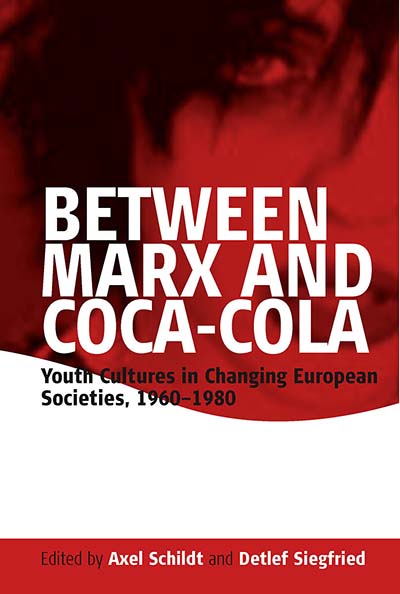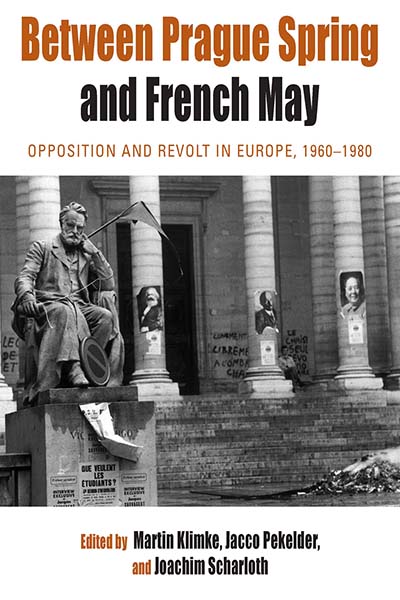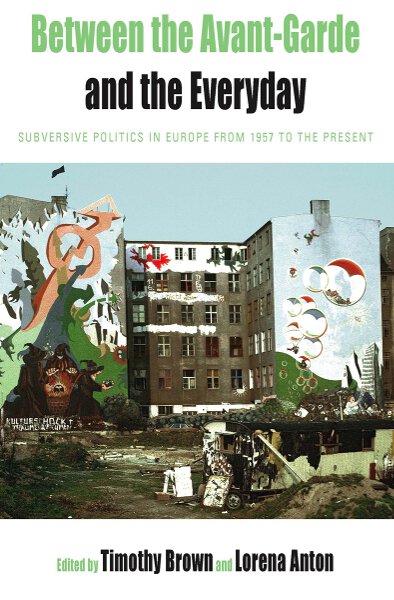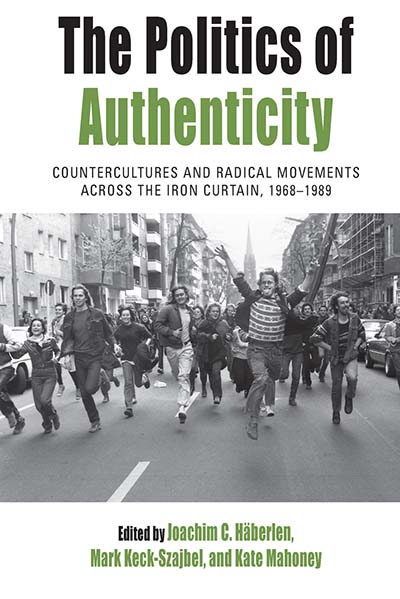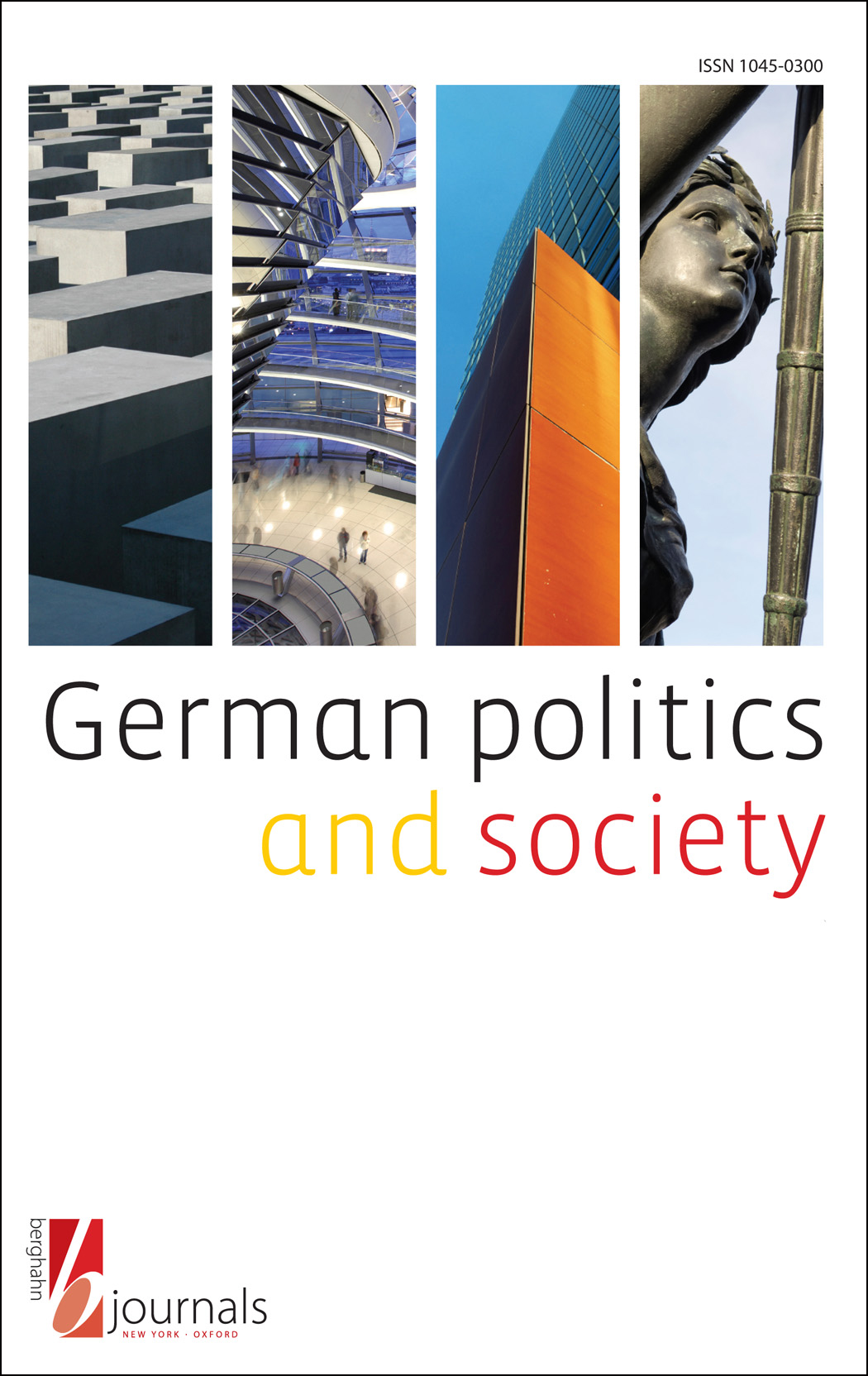 The year 1968 brought a wave of anti-authoritarian political activity across Europe and beyond which may have been seen as a decisive turning point in the Western world. The protests and social movements of 1968 comprised a worldwide escalation of social and political conflicts and marked the climax of protests that simultaneously captured most industrialized Western countries.
The year 1968 brought a wave of anti-authoritarian political activity across Europe and beyond which may have been seen as a decisive turning point in the Western world. The protests and social movements of 1968 comprised a worldwide escalation of social and political conflicts and marked the climax of protests that simultaneously captured most industrialized Western countries.
Here, we gather a short reading list of titles that explore the effects of these protest movements on the political, social, and symbolic order of the societies they called into question:
BERGHAHN BOOKS
A REVOLUTION OF PERCEPTION?
Consequences and Echoes of 1968
Edited by Ingrid Gilcher-Holtey
The year “1968” marked the climax of protests that simultaneously captured most industrialized Western countries. The protesters challenged the institutions of Western democracies, confronting powerful, established parties and groups with an opposing force and public presence that negated traditional structures of institutional authority and criticized the basic assumptions of the post-war order. Exploring the effects the protest movement of 1968 had on the political, social, and symbolic order of the societies they called into question, this volume focuses on the consequences and echoes of 1968 from different perspectives, including history, sociology, and linguistics.
SISTERS IN ARMS
Militant Feminisms in the Federal Republic of Germany since 1968
Katharina Karcher
Few figures in modern German history are as central to the public memory of radical protest than Ulrike Meinhof, but she was only the most prominent of the countless German women—and militant male feminists—who supported and joined in revolutionary actions from the 1960s onward. Sisters in Arms gives a bracing account of how feminist ideas were enacted by West German leftist organizations from the infamous Red Army Faction to less well-known groups such as the Red Zora. It analyzes their confrontational and violent tactics in challenging the abortion ban, opposing violence against women, and campaigning for solidarity with Third World women workers. Though these groups often diverged ideologically and tactically, they all demonstrated the potency of militant feminism within postwar protest movements.
THE IMAGINARY REVOLUTION
Parisian Students and Workers in 1968
Michael Seidman
CHOICE OUTSTANDING ACADEMIC BOOK OF THE YEAR 2005
The events of 1968 have been seen as a decisive turning point in the Western world. The author takes a critical look at “May 1968” and questions whether the events were in fact as “revolutionary” as French and foreign commentators have indicated. He concludes the student movement changed little that had not already been challenged and altered in the late fifties and early sixties. The workers’ strikes led to fewer working hours and higher wages, but these reforms reflected the secular demands of the French labor movement. “May 1968” was remarkable not because of the actual transformations it wrought but rather by virtue of the revolutionary power that much of the media and most scholars have attributed to it and which turned it into a symbol of a youthful, renewed, and freer society in France and beyond.
BETWEEN MARX AND COCA-COLA
Youth Cultures in Changing European Societies, 1960-1980
Edited by Axel Schildt and Detlef Siegfried
In the 1960s and 1970s, Western Europe’s “Golden Age” (Eric Hobsbawm), a new youth consciousness emerged, which gave this period its distinctive character. Offering rich and new material, this volume moves beyond the easy conflation of youth culture and “Americanization” and instead sets out to show, for the first time, how international developments fused with national traditions to produce specific youth cultures that became the leading trendsetters of emergent post-industrial Western societies. It presents a multi-faceted portrait of European youth cultures, colored by differences in gender, class, and education, and points out the tension between emerging consumerism and growing politicisation, succinctly expressed by Jean-Luc Godard in his 1967 pairing of “Marx and Coca-Cola.”
BETWEEN PRAGUE SPRING AND FRENCH MAY
Opposition and Revolt in Europe, 1960-1980
Edited by Martin Klimke, Jacco Pekelder & Joachim Scharloth
Abandoning the usual Cold War–oriented narrative of postwar European protest and opposition movements, this volume offers an innovative, interdisciplinary, and comprehensive perspective on two decades of protest and social upheaval in postwar Europe. It examines the mutual influences and interactions among dissenters in Western Europe, the Warsaw Pact countries, and the nonaligned European countries, and shows how ideological and political developments in the East and West were interconnected through official state or party channels as well as a variety of private and clandestine contacts. Focusing on issues arising from the cross-cultural transfer of ideas, the adjustments to institutional and political frameworks, and the role of the media in staging protest, the volume examines the romanticized attitude of Western activists to violent liberation movements in the Third World and the idolization of imprisoned RAF members as martyrs among left-wing circles across Western Europe.
BETWEEN THE AVANT-GARDE AND THE EVERYDAY
Subversive Politics in Europe from 1957 to the Present
Edited by Timothy Brown and Lorena Anton
The wave of anti-authoritarian political activity associated with the term “1968” can by no means be confined under the rubric of “protest,” understood narrowly in terms of street marches and other reactions to state initiatives. Indeed, the actions generated in response to “1968” frequently involved attempts to elaborate resistance within the realm of culture generally, and in the arts in particular. This blurring of the boundary between art and politics was a characteristic development of the political activism of the postwar period. This volume brings together a group of essays concerned with the multifaceted link between culture and politics, highlighting lesser-known case studies and opening new perspectives on the development of anti-authoritarian politics in Europe from the 1950s to the fall of Communism and beyond.
THE POLITICS OF AUTHENTICITY
Countercultures and Radical Movements across the Iron Curtain, 1968-1989
Edited by Joachim C. Häberlen, Mark Keck-Szajbel, and Kate Mahoney
Coming October 2018!
Following the convulsions of 1968, one element uniting many of the disparate social movements that arose across Europe was the pursuit of an elusive “authenticity” that could help activists to understand fundamental truths about themselves—their feelings, aspirations, sexualities, and disappointments. This volume offers a fascinating exploration of the politics of authenticity as they manifested themselves among such groups as Italian leftists, East German lesbian activists, and punks on both sides of the Iron Curtain. Together they show not only how authenticity came to define varied social contexts, but also how it helped to usher in the neoliberalism of a subsequent era.
BERGHAHN JOURNALS
Contention
The Multidisciplinary Journal of Social Protest
Editors: Benjamin Abrams, University of Cambridge, and Giovanni A. Travaglino (Founding Editor), University of Kent
The Role of the Reflexive Self in Mailer’s Protests
by Jon Dean
French Politics, Culture & Society
Editor: Herrick Chapman, New York University
The Tracts of May
by David Ball
Editor: Jeffrey J. Anderson, Georgetown University
Turning “liberal Critics” into “Liberal-Conservatives”: Kurt Sontheimer and the Re-coding of the Political Culture in the Wake of the Student Revolt of “1968”
by Riccardo Bavaj
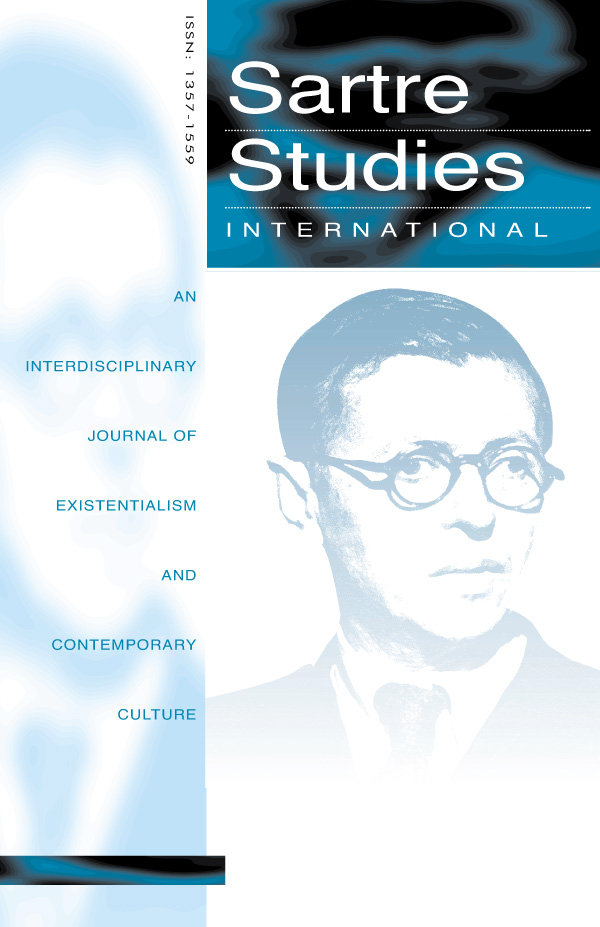 Sartre Studies International
Sartre Studies International
An Interdisciplinary Journal of Existentialism and Contemporary Culture
Executive Editors:
For the UKSS
John Gillespie, Ulster University
Sarah Richmond, University College London
For the NASS
David Detmer, Purdue University Calumet
John Ireland, University of Illinois at Chicago
Sartre and May 1968: The Intellectual in Crisis
by David Drake

